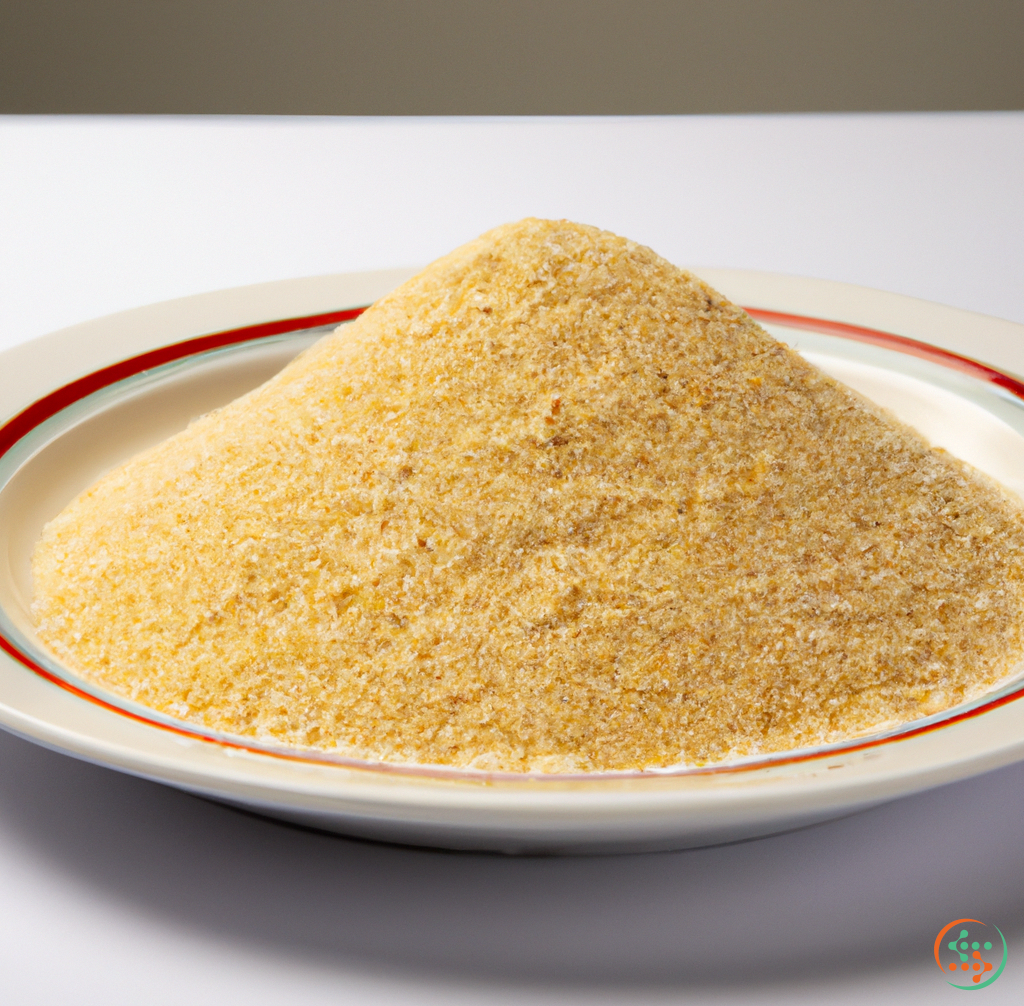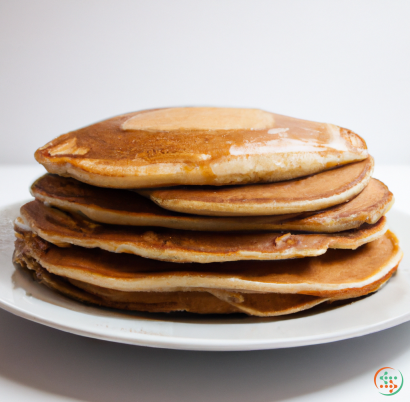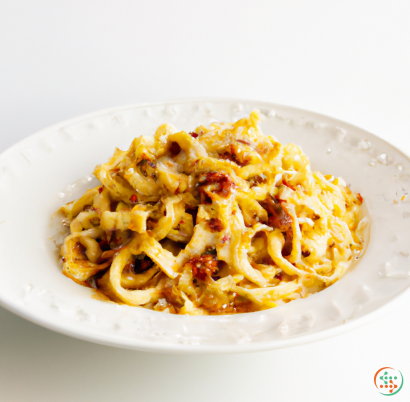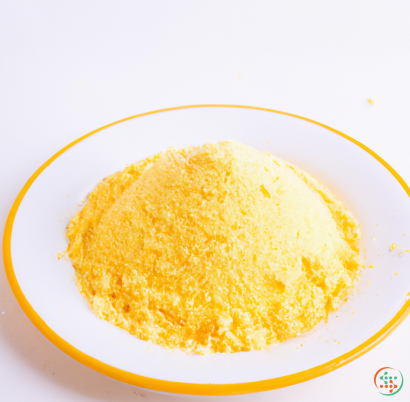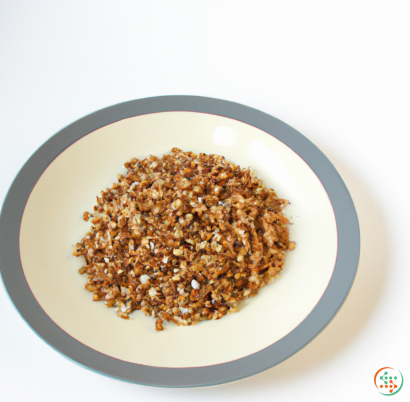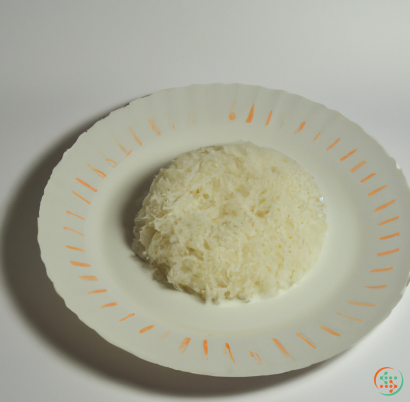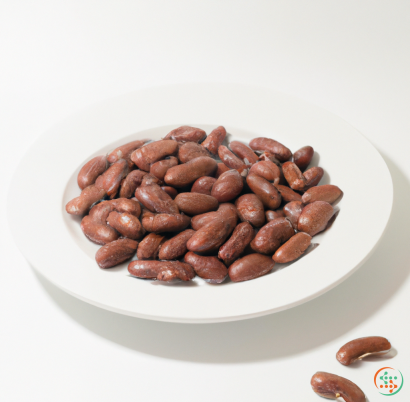Whole Grain Corn Flour
Whole grain corn flour is a type of flour made by grinding the entire corn kernel into a fine powder. This flour is known for its robust flavor and nutrient-rich qualities that make it a great choice for baking and cooking.
Corn kernels consist of four parts - the germ, bran, endosperm, and hull. When ground into a flour, all of these components are preserved, meaning that the entire kernel is ingested as part of a meal or snack. This provides an array of vitamins, minerals, and antioxidants that would normally be lost during other milling processes. By consuming the entire grain, these nutritional perks remain intact and provide an array of health benefits.
Whole grain corn flour is considered to be whole grain because it contains all three parts of the grain - the germ, bran, and endosperm. The germ contains essential fatty acids, proteins, minerals and vitamins, the bran provides vitamins B and E, dietary fiber, essential fatty acids, and antioxidants, and the endosperm is a starchy portion which provides carbohydrates and a small amount of protein. By preserving the nutritious portions of the grain, the flour is more nutritious than degermed and enriched flours, which removes these vital components.
Whole grain corn flour is versatile, meaning that it can be used in a variety of recipes, from sweet to savory to bake goods. Depending on the intended dish, the amount of the flour used may need to be adjusted due to its potent flavor. When substituting other types of flours, half and half might be a good starting option. Because of its robust flavor, it can add a pleasant aroma and flavor to a dish. When used in pancakes, muffins, or cakes, this flour adds a unique and complex flavor to the finished product.
This flour can also be used in many savory dishes such as tortillas, tamales, and tacos. The dough for these preparations typically relies upon corn flour as the main ingredient, providing much needed stretch and structure without taking away from the flavor. When used as a thickener in soups and sauces, the flour adds a unique earthy and nutty flavor.
In addition to its delicious taste, there are many nutritional benefits of whole grain corn flour. Corn is considered to be a powerhouse of nutritional value, being an excellent source of vitamins, minerals, and healthy fats which are necessary for a balanced diet. Since the whole corn kernel is used, the complex carbohydrates found therein will provide longer lasting energy as compared to refined white flour. The antioxidants present in the germ are known to reduce inflammation and can be beneficial to those suffering from chronic ailments. In addition, this flour is naturally gluten free, making it the perfect choice for people with celiac disease or other gluten-related disorders.
Whole grain corn flour is an excellent option for those wishing to incorporate more healthful and nutrient-rich ingredients into their diet. It can be used in a variety of recipes, from savory to sweet, and provides an abundance of vitamins, minerals, and antioxidants. Of course, many other types of flour exist and any one of them can yield fantastic results in the kitchen. However, due to its flavor profile and nutritional benefits, whole grain corn flour is definitely worth considering when searching for a more wholesome ingredient.
Whole grain corn flour is a type of cereal grain made from whole ground corn kernels. The flour is created by grinding the entire grain, including the germ, endosperm, and bran. The entire grain provides essential nutrients, such as dietary fiber, vitamins, minerals, and protein. This type of flour is used in a variety of dishes including breads, muffins, and tortillas. It also makes a great addition to soups and stews.
The production of corn flour begins with the harvesting of the dried, mature corn kernels. The harvesting process starts by disbudding the ears, which involves removing the husks and the silk from the ears. The corn is then placed in storage, where it can be left until the time of milling. After the corn is at the mill, the kernels are fed into a shelling machine that removes the germ and the bran.
The resulting kernels contain only the endosperm, which is then ground and sifted to obtain the flour. This process is repeated until the desired end product is achieved – a fine, white powder composed of small granules. The grains and sifting screen sizes are designed to allow only the finest particles, known as “flour”, to pass through, while keeping the larger particles, such as bran and germ, in the sifting screen.
After the desired consistency of flour is achieved, the flour is put into storage, typically in bins or bags. It is then typically loaded into shipping containers and shipped to retailers or restaurants in the form of 50 and 100-pound bags or smaller sizes for consumer use.
During shipping, the flour must be handled with care as any mishandling can cause damage to the flour and reduce its quality. The shipping containers must be designed to protect against air convection and humidity damage and ideally, should include climate controlled systems. Further, each container should contain proper documentation indicating the contents, weight, and grade/type of the flour.
Once the flour arrives at its final destination, it is stored and monitored for freshness. The stored flour must be kept dry and cool and must remain in a temperature between 50 - 80 degrees Fahrenheit.
After the flour is stored at the retailer or restaurant, it is ready for customers to purchase. The flour can be bought in bulk or pre-packaged. Often, the flour is bought for specific recipes, including but not limited to muffins, tortillas, cornbread, and other similar dishes.
Once a customer has purchased the flour, it typically gets taken home to be prepared and cooked. If a pre-packaged flour is purchased, the package usually states how much is to be used and what methods are best for preparation.
The flour can then be integrated into the desired food item by way of one of several methods. For muffins, the most common way of doing this is to incorporate the flour into the dry ingredients, before slowly adding the wet ingredients. This particular recipe usually calls for eggs, butter, milk, and other wet ingredients. For a cornbread, the flour is usually mixed with the other dry ingredients, such as cornmeal, and then combined with eggs and milk.
Once the desired recipe is complete, the mixture can be poured into a greased or lined baking pan or dish for baking or cooking. The cooking time and temperature will depend on the specific recipe and can vary depending on the type of food being made.
When the desired dish is finished, the finished product can be served. The flour in the dish provides essential vitamins, minerals, and proteins that can help with digestion, as well as providing a rich flavour and texture.
In conclusion, whole grain corn flour is an incredibly versatile product that can be used for a vast array of dishes. Through careful handling of the grain, grinding, and shipping, the flour arrives in perfect condition at the retailer and is then used in the preparation of delicious dishes.
Whether used in bakeries, restaurants, or home kitchens, this type of flour is sure to add an amazing flavor and nutrient-rich experience to any meal.
| Vitamin A | 0.011 mg | |
| Beta-Carotene | 0.097 mg | |
| Alpha-Carotene | 0.063 mg | |
| Vitamin E | 0.42 mg | |
| Vitamin K | 0.3 ug | |
| Vitamin B1 | 0.25 mg | |
| Vitamin B2 | 0.08 mg | |
| Vitamin B3 | 0.0019 grams | |
| Vitamin B4 | 0.0216 grams | |
| Vitamin B5 | 0.66 mg | |
| Vitamin B6 | 0.37 mg | |
| Vitamin B9 | 0.025 mg |
| Calcium | 0.007 grams |
Daily Value 1.3 g
|
| Iron | 0.00238 grams |
Daily Value 0.018 g
|
| Magnesium | 0.093 grams |
Daily Value 0.4 g
|
| Phosphorus | 0.272 grams |
Daily Value 1.25 g
|
| Potassium | 0.315 grams |
Daily Value 4.7 g
|
| Sodium | 0.005 grams |
Daily Value 2.3 g
|
| Zinc | 0.00173 grams |
Daily Value 0.011 g
|
| Copper | 0.23 mg |
Daily Value 0.9 mg
|
| Manganese | 0.46 mg |
Daily Value 0.0023 g
|
| Selenium | 0.0154 mg |
Daily Value 0.055 mg
|
| Tryptophan | 0.049 grams | |
| Threonine | 0.261 grams | |
| Isoleucine | 0.248 grams | |
| Leucine | 0.85 grams | |
| Lysine | 0.195 grams | |
| Methionine | 0.145 grams | |
| Cystine | 0.125 grams | |
| Phenylalanine | 0.34 grams | |
| Tyrosine | 0.282 grams | |
| Valine | 0.351 grams | |
| Arginine | 0.345 grams | |
| Histidine | 0.211 grams | |
| Alanine | 0.518 grams | |
| Aspartic Acid | 0.482 grams | |
| Glutamic Acid | 1.3 grams | |
| Glycine | 0.284 grams | |
| Proline | 0.605 grams | |
| Serine | 0.329 grams |
| Total Sugars | 0.6 grams |
per 100g
|
| Palmitic acid (16:0) | 0.46 grams |
|
| Stearic acid (18:0) | 0.06 grams |
|
| Total Saturated fatty acids: | 0.52 g | |
| Oleic acid (18:1) | 1.02 grams |
|
| Total Monounsaturated fatty acids: | 1.02 g | |
| Linolenic acid (18:3) | 0.05 grams |
|
| Linoleic acid (18:2) | 1.71 grams |
|
| Total Polyunsaturated fatty acids: | 1.76 g | |
